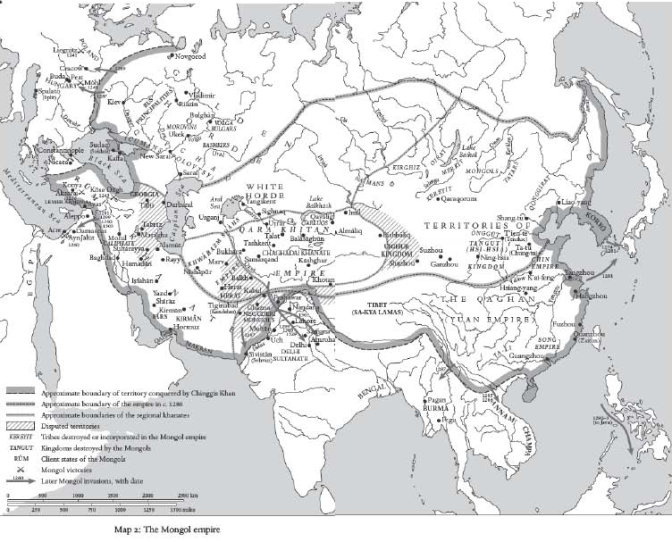For the period 400-1000 AD, recent works include:
1) Chris Wickham, The Inheritance of Rome: Illuminating the Dark Ages 400-1000. (Viking, 2009)
2) Chris Wickham, Framing the Early Middle Ages (Oxford, 2005)
3) W. Blockmans & P. Hoppenbrouwers, Introduction to Medieval Europe, 300-1500 (Routledge, 2007)
4. Students may also download free from the Internet Archive, the entire set of The New Cambridge Medieval History. We'll use or refer to select chapters and maps from that 7 volume series.
From Volume 1: Paul Foracre, Introduction: The History of Europe 500-700 pp 1-12
From Volume 2: Niels Lund, Scandinavia 700-1066 pp. 202-227
From Volume 2: Hugh Kennedy, The Muslims in Europe, pp. 249-270
From Volume 2: Michael McCormick, Byzantium and the West. 700-900 pp. 349-382
Women's History
For an excellent collection of contemporary letters and documents on women's history in medieval Europe, go to this website at Columbia University. In the area of women's history in early modern Europe, Merry Wiesner-Hanks, Women and Gender in Early Modern Europe (Cambridge, 2008); Laura Gowing, Domestic Dangers: Women, Words and Sex in Early Modern London, (Oxford, 1996); On gender and its construction, see Louis Crompton's Homosexuality and Civilization (Cambridge, MA: Belknap Press, 2003); Randolph Trumbach, Sex and the Gender Revolution (Chicago, 1998); Valerie Traub, The Renaissance of Lesbianism in Early Modern England (Cambridge, 2002).
Economic and Social History
A major study of the early medieval European economy is M. McCormick, Origins of the European Economy (Cambridge, 2001). This supersedes and augments earlier classical works, including Georges Duby, The Early Growth of the European Economy (1978), and Marc Bloch, Feudal Society (1961 - published posthumously). For a survey of the later European economy, see Steven Epstein, An Economic and Social History of Later Medieval Europe, 1000-1500. (Cambridge, 2009).
On the family and individualism, see, Alan Macfarlane, The Origins of English Individualism: The Family, Property and Social Transition (Cambridge, 1979). On food and drink, see, Barbara Ketchum Wheaton, Savoring the Past: The French Kitchen and Table from 1300 to 1789 (New York: Touchstone, 1989); Lisa Roslaind Jones and Peter Stallybrass, Renaissance Clothing and the Materials of Memory (Cambridge, 2000); André Burgière et al., eds., A History of the Family, 2 vols. (Harvard U. Press, 1996)
Key Texts: on the Rise of the Carolingians and Encounter with early Islamic raiding parties in lower France.
Fordham Internet Medieval Sourcebook
- Charles Martel
- Anonymous Arab Chronicler: The Battle of Tours (Poitiers), 732.
- Arabs, Franks, and the Battle of Tours (Poitiers): Three Accounts, 732
- [Tierney 24.2] Gregory III: Letter to Charles Martel , 739.
- Pepin
- [Tierney 24.3] Annals of Lorsch: The Pope makes Pepin king. See also Catholic Encyclopedia: Pepin the Short.
- [Tierney 25.1] Life of Pope Stephen II 752-57, copyrighted
- [Tierney 25.2] The Donation of Constantine , full text.
- The Correspondence of St. Boniface
- On Charlemagne
- Personality
- [Tierney 26.1, Geary 18] Einhard: Life of Charlemagne, (written c. 817-830), Selections. The full text of Einhard: The Life of Charlemagne is available. See also Catholic Encyclopedia: Einhard and Catholic Encyclopedia: Charlemagne.
- The Monk of Saint Gall (Notker the Stammerer): The Life of Charlemagne, c. 883/4, full text.
- Wars
- Einhard: The Wars of Charlemagne, excerpts from the Life of Charlemagne, c. 770 - 814
- [Tierney 26.2] Annals of Lorsch, copyrighted
- [Tierney 26.3] Frankish Royal Annals, copyrighted
- [Tierney 27.1] Summons to Charlemagne's Army, c. 804-811.
- Personality
